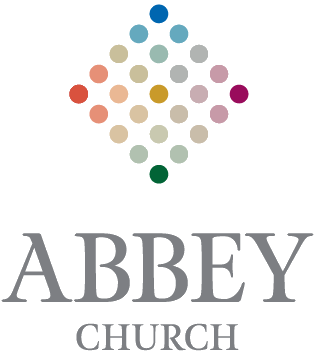In 2018 we start a new venture in Abbey with the launch of 52 Stories
Fro m start to finish the Big Story is a communal, not an individual, enterprise. That’s why we’ll be covering these 52 stories in the communal setting of church services. Each story will be told (and retold) in a variety of ways to suit all ages and stages. Israel told and retold its story (which is also our story) each day, each week and throughout the year. Many of the stories we’ll cover were used in liturgies and during the annual festivals. In good times and in bad, these stories provided a sense of being in the world as God’s people. So in a sense our year of stories is a communal improvisation upon Israel’s communal improvisation. Together we become ‘Shaped by the Story.’
m start to finish the Big Story is a communal, not an individual, enterprise. That’s why we’ll be covering these 52 stories in the communal setting of church services. Each story will be told (and retold) in a variety of ways to suit all ages and stages. Israel told and retold its story (which is also our story) each day, each week and throughout the year. Many of the stories we’ll cover were used in liturgies and during the annual festivals. In good times and in bad, these stories provided a sense of being in the world as God’s people. So in a sense our year of stories is a communal improvisation upon Israel’s communal improvisation. Together we become ‘Shaped by the Story.’
General Template of Services
Welcoming
(Recognising those who have come, why they have come, the God who has drawn them and what to expect)
Introducing
(Explain what we are doing in our 52:1 series and insist that this is about bringing the story of each of our lives to ‘the story’ and ‘The Story’ of God’s will)
Bidding & Invocation
(Inviting each person to place themselves and every aspect of their lives before God with the promise of listening to God’s Spirit and for God’s revelation through ‘the story’ that is about to be told. Also inviting God to make Himself present to us in and through our worship.)
Locating
(Placing ‘the story’ on the map of stories: why this story has been chosen; what the story is essentially about; and what to listen out for.)
Telling
(Using a variety of versions/approaches: readings, visuals, dramas, song, music, quizzes, memorising techniques (games, exercises) etc, to tell ‘the story’)
Improvising
(Recounting ‘the story’ within the 52 stories and within ‘The Big Story’ and suggesting ways in which this contextualised ‘story within The Story’ can be explored in our living this week.)
Responding
(Responding to the God who has been manifest in and through ‘the story’ and ‘The Story’):
Confession & Pardon
Supplication & Intercession
Lord’s Prayer
Offering, Thanksgiving & Dedication
Inviting to share in our fellowship (i.e. announcements)
Praise (doxology, dismissal, benediction, peace)
New to Abbey alongside bulletins with puzzle pages for the children during each service we have a special link to games that can be played on line during the week.
ACT 1 – CREATION
- Creation: God’s Garden (Temple)
Gen.1-2 and 5:1-2`; Psm.8; Psm.104; Psm.103:19-22; Psm.148:2-5; Isa.45:11-13 and 18-19; Neh.9:5-7; Job 38:4-7; Col.1:15—17; Heb.11:2; (New Creation): Isa.65:17-25; Isa.66:18:23; Rev.21:1-3; Rom.8:18-2; Jn.1:1-5,9-10; 2 Pet.3:1-7
- Adam & Eve: God’s Image (Kingdom)
Gen.1:26-2:3; Gen.2:4-9,15-25; Gen.9:5-6; Lk.3:23-38; Eph.5:21-33; Mk.10:1-12; 1 Cor.6:12-20; (New Creation): Gal.6:11-16; Eph.2:10; 5:1-2; Col.1:15-20
ACT 2 – FALL
- Fall & Expulsion (Exile)
Gen.3:1-24; Jn.842-47; 2 Cor.11:1-4; 1 Cor.15:20-49; Rom.5:12-2; 1Tim.2:8-15; Rev.2:7and 22:1-6
- Spiral of Decline: Cain & Abel
Gen.4:1-17; Heb.11:4 and 12:22-24; 1 Jn.3:11-18; Lk.11:47-51
- Spiral of Decline: Noah & Flood
Gen.6:1-9:17; Isa.54:9-10; 1 Pet.3:13-22; 2 Pet.2:1-9; 3:1-7; Mt.24:36-44//Lk.17:20-27; Heb.11:7
- Spiral of Decline: Tower of Babel
Gen.11:1-9; Acts 2:1-13; Rev.5:9-10; 14:6-7
ACT 3 – ISRAEL
- Abraham & Sarah (Isaac)
Gen.17:2-21; 18:1-17; Heb.11:8-19; Gen.22:1-19; Mt.3:7-10; Jn.8:48-59; Gal.3:1-9; Gal.4:21-31 (cf. Gen.21); Rom.4:1-25; the first Christians emphasised the continuity between the patriarchs and Jesus: (Peter) Acts 3:11-26; (Stephen covers much of the ground that we cover in these 52 stories) Acts 7:1-53; (Paul) Acts 13:13-52; Rom.4:1-5:11; 9:1-13; 1 Pet.2:9-10; 3:1-7; Eph.1:3-6
- Isaac
Gen.22:1-18; Heb.11:20; Rom.9:1-13. [See Levenson, Chp.7, ‘First-born and Late-born, Fathers and Mothers’: 55-60] on ‘the binding’ see Levenson, Chp.11, ‘The Aqedah as Etiology’: 111-124 and Chp.11, ‘Isaac Unbound’: 125-142. See also Chp.14, ‘The Rewritten Aqedah of Jewish Tradition: 173-199]
- Jacob & Esau
Gen.25:19-34; 27:1-42; Heb.11:21[See Levenson, Chp.8, ‘The Loved and the Unloved’: 61-68 and Chp.9, ‘Fear and Fratricide’: 69-81]
- Joseph
Gen.37:1-11; 43:1-15; 44:1-17 & 45:1-11; Heb.11:22; Moses is compared to Joseph (Ex.3:1/Gen.37:2b – see Levenson: chp.13, esp.144) and David is compared with Joseph (1 Sam.16:11-13/Gen.37 – see Levenson: 145). Ps.78:70-72; Mic.5:1-5; Ezek.34:23-30 and 37:24-28. On the story of Joseph see Levenson, Chp.13, ‘The Beloved Son as Ruler and Servant: 143-169]
- Judah & Tamar
Gen.38:1-30; Dt.25:5-10 [Levenson: 157ff, insists upon the deliberate positioning of Gen.38 between Gen.37 & 39. Joseph and Judah inform each other at this point and this story plays a critical role in the unfolding story of Joseph. See espc.: 161.]
- Amram & Wife (Moses)
Ex.2:1-3:22; Heb.11:23-26; Acts 7:17-34
- Passover & Exodus
Ex.12:1-42; Ex.13:1-2,11-16; 13:17-1431; Dt.28:15-68; Heb.11:27-28; Rom.9:14-18; Heb.3:1-19; Isa.63:10-16; 1 Pet.1:2,19; Mt.22:1-14; Ezk.20:1-13
- Tabernacle
Ex.24:12-25:22& 40:1-38; Acts 7:44-50; Jn.1:14; Heb.8:4-10:25
- Sinai & Law*
Ex.19:1-20:20; (the Law/Torah was always regarded by Israel/Jews as a gift from God; just as God’s call to make them a people distinct from all the other peoples was regarded as God’s gift/grace. We must therefore be careful when handling references to ‘the Law.’ Since the Reformation it has become the norm to set ‘salvation by works/law’ against ‘salvation by grace/faith.’ But this is not necessarily how Paul (the main go-to man) understood the nature and relationships between Law and Grace. In fact, Paul had a complex view about God’s intended role for the Law in and through Israel for the world. Ultimately, he regards those aspects of the Law that would maintain a permanent distinction between Jew and Gentile as being made obsolete because of Christ and the one and only basis of salvation being faith. However, the Jew-plus-Gentile family of Abraham in and through Jesus retains the vocation of Israel to be distinguished by their restored image and in their renewed vocation. It is with that cautionary note that we direct you the following texts: Gal.3:1-4:7; 4:21-5:15; Rom.Rom.3:21-31; 7:1-6; 7:7-25; 9:1-10:13; Jn.1:14-18; Jam.2:14-26; 1 Tim.1:8-11
[For the Gospels on Jesus (apart from Paul but foundational to him, See JVG: 432-436 on Redefined Torah & Rebuilt Temple. Note the summary on 4354]
- Desert Wandering
Nu.13:1-14:38; Acts 7:35-43; Heb.3:1-4:16; Ezk.20:13b-26 and 21:32-38
- Joshua & Entry (Rahab)
Jos.1:1-11; 2:1-24; 6:22-25; Heb.11:29-31; Acts 13:16-19; Jam.2:24-26
- Spiral of Decline: Deborah
Jdg.2:11-12 and 21:25; Jdg.5:1-31; Acts 13:20
- Spiral of Decline: Manoah & Wife (Samson)
Jdg.13:1-25; 16:23-31; Heb.11:32-34
- Spiral of Decline: The Benjaminites
Jdg.19:1-20:11; Heb.11:32
- Boaz & Ruth (Obed)*
Ru.3:1-4:17 [See, Petersen, Five Smooth Stones for Pastoral Work, Chp.2, ‘The Pastoral Work of Storymaking: Ruth’: 73-112]
- Elkanah & Hannah (Samuel)
1 Sam.1:1-28
- Spiral of Decline: Samuel
1 Sam.3:1-4:22
- Kingdom: Saul
1 Sam.8:1-10:1a& 10:17-25; Acts 13:20-21
- Kingdom: David Chosen
1 Sam.15:10-16:13& 2 Sam. 5:1-5; Acts 13:22-23; Gen.37, comp. 1 Sam.16-11-13; (1 Sam.16:11-13/Gen.37 – see Levenson: 145). Ps.78:70-72; Mic.5:1-5; Ezek.34:23-30 and 37:24-28
- Kingdom: David Compromised
2 Sam. 11:1-12:25
- Kingdom: Solomon, Wisdom,Temple
1K.1:1-53; 3:1-15; 5:1-6 & 8:1-30; Acts 7:44-50; Heb.7:1-8:13; Isa.60:10-22; Jn.2:13-25; (on wisdom): Jam.3:13-18; 1 Cor.1:18—31; Isa.66:1-2; 1 Pet.2:4-8; Eph.1:9, 16-23; 5:15-16; Col.1:9-14; 2:1-3; 2:16-23; 3:16-17; 2 Tim.3:16
- Kingdom: Exile
N.K. to Assyria: 2K. 17:1-34; S.K. to Babylon: Jer.25:1-12 & 29:1-14; 2 Chr.36:11-21; Isa.64:8-12; Ezk.4:1-17
- Return from Exile: Ezra/Nehemiah
Neh.2:1-5 (city) & Ez.1:1-4 (ark); Isa.44:24-45:13; Isa.512:1-12 (note the exodus terminology); Isa.60:10-22; 62:1-12; 66:6-14; 1 Pet.1:17; 2:11
- Return from Exile: Daniel 70×7
Dan.9:1-3 & 20-24; Neh.9:36; (the seven times tables were built into Israel’s communal life: a Sabbath every 7 days; a Sabbath year every 7 years; the Jubilee Year every 7×7 years (the 50th year) – see Lev.23:1-3 & 25:1-17. That makes the 70×7 a Jubilee of Jubilees. That’s the story Matthew is going to tell, and that’s why he begins with the genealogy arrangement as he does – Mt.1:1-17. Israel’s entire history from Abraham to the present comprised 14 times three, that is, six sevens- with Jesus we get the seventh seven. Jesus is the jubilee in person. He is the one who will rescue Israel from its long-continued nightmare, the one who, according to the angel, will ‘save his people from their sins.’ This is not just their personal sins being forgiven, it is the end of the exile which was the punishment for sin – see Isa.40:1-2 and Lam.4:22. Thus the BIG Story enters Act 4.
ACT 4 – JESUS
- Jesus’ Family Tree
Mt.1:1-17; on the five women mentioned see: Stories: 11, 17, 2 and, 27.[For an alternative family tree see: Lk.3:23-38]; 2 Tim.2:8-9
- Jesus’ Birth: Mary
Mt.1:18-25. For an alternative infancy narrative see: Lk.1:1-2:52 and Jn.1:1-14; Acts 13:22-25; Isa.54:1-3; Php.2:5-7; Col.1:15-20 and 2:9-10
- Jesus’ Wise Well-wishers
Mt.2:1-12; Nu.24:17; 1K.10:1-13//Mt.12:42
- Jesus’ Flight to Egypt
Mt.2:16-23; Gn.42:1-5; 43:1-15; 45:1-8; 46:1-4; 50:15-21; Ex.2:15 & 4:19-20; 1 K.11:40; 2 K.25:26 & Jer.26:21; Hos.11:1; Jer.31:15; Ex.4:19; Psm.22; Isa.53; Zech.11:4-14
- Jesus’ Baptism as Exodus
Mt.3:2-27; Ex.14:21-31; Jos.3:14-17 & 4:15-24; Gal.3:23-29; Mt.28:18-20; Rom.6:1-4; 1 Pet.3:18-22; Col.2:12 [See Levenson, ‘Chp.15, ‘The Displacement of Isaac and the Birth of the Church’ – Jesus displaces Isaac, 200-219 and Chp.16, ‘The Revisioning of Go in the Image of Abraham’: 220-232]
- Jesus’ Ministry Launched (Kingdom)
Mt.4:1-25 – see Story 31/70×7; Isa.61:1-4 (Lk.4:16-21). As in so many things, John has his own distinctive take on the launching of Jesus’ ministry. Having called disciples to follow him, Jesus goes public with his water into wine miracle at the wedding in Cana (immediately followed by his disturbance in the temple) – Jn.2:1-25. The famous prologue (Jn.1:1-14), by appealing to Genesis and Exodus, indicated that John, like the other gospel writers, believed Jesus to be the (surprising) climax of Israel’s Big Story. The remainder of the gospel wrestles with the question as to how someone like Jesus can possibly be the one for whom Israel longed. Things come to a head when Pilate offers the Jews their ‘king’ and they declare they have no king but Caesar (Jn.19:15).
- Jesus’ Temple Cleansing (Kingdom)
Jn.2:13-25; Mt.21:12-17; Mk.11:15-19; Lk.19:45-48
[See JVG:432-437 on Redefined Torah & Rebuilt Temple]
- Jesus’ Mighty Works (Kingdom)
Mk.5:1-20
Note NTW, JVG:186-196 – inaugurating the Kingdom, reconstituting Israel and (thereby) restoring the whole of creation. See summary quote on 196.
- Jesus’ Parables (Kingdom)
Mt.21:33-46; Matthew presents the parables in five blocks, thus they form an integral part of the structure: Block 1 (13:1-53), Block 2 (18:1-33), Block 3(19:23-20:16), Block 4 (21:28-22:14), Block 5 (25:1-30). Mt.13:10-17 explains why Jesus taught in parables, but even without this (still) cryptic explanation it is clear that all serve to manifest the Kingdom of God.
- Jesus’ Passover (Kingdom)
Mt.26:17-29; Ex.12:1-42; Ex.13:1-2,11-16; 13:17-1431; Dt.28:15-68; Heb.11:27-28; Rom.9:14-18; Heb.3:1-19; Isa.63:10-16; 1 Pet.1:2,19; Jn.2:13-25 [include reference to Jesus’ characteristic table-fellowship which redefines who the Family is and thereby acts as another symbol of the kingdom he is inaugurating. He is celebrating the messianic banquet with all the wrong people. See: JVG:430-432 and 437f.]
- Jesus’ Trials (Kingdom)
Mt.26:57-68 & 27:11-26; Isa.50:4-6; 1 Tim.6:11-16; Jn.18:12-19:15
- Jesus’ Crucifixion (Kingdom)
Mt.27:32-56; Acts 13:26-29; Isa.53:1-12; Isa.63:7-9; Jn.19:17-37; Pet.2:21-25; Eph.1:7-8; 1 Thes.5:9-10; 1 Tim.2:5-6
ACT 5 – NEW CREATION
- Jesus’ Resurrection (Kingdom)
Mt.27:57-28:15; Acts 13:30-41; Acts 23:1-11; 24:1-15; 26:12-23; 1 Cor.15:1-58; Rom.6:5-11; Isa.49:5-6; 1 Pet.1:3-4,21; Eph.1:16-23; 2:1-10; Php.2:5-1; Col.1:18; 2:12-15and 3:1 ; 1 Thes.4:13-15; 2 Tim.2:11-13
- Jesus’ Ascension (Kingdom)
Acts 1:1-11; Lk.24:50-53; Heb.12:1-2; Eph.1:16-23; 4:7-10; Col.3:1-4; 1 Thes.4:16-18; 2 Thes.1:5-8
- Stephen’s Speech
Acts 7:1-60; (See Stories: 7, 8, 9, 10, 12, 13, 14, 15, 16, 25 and 27)This is a classic example of how many of the stories we have considered are marshalled into the Big Story that Jesus brings to a climax. Many of the sermons recorded in Acts display this approach to a greater or lesser degree.
- Pentecost (Babel Undone)
Acts 2:1-36; Gen.11:1-9; Eph.1:13-14; 3:14-4:16, 30; 5:17-20; Ezk.39:25-29
- Peter & Cornelius (Jew plus Gentile)
Acts 10:1-11:18; Isa.45:14-25 (cf. Php.2:1-10);
- Paul v Peter (Jew plus Gentile)
Gal.1:11-21; Gal.3:23-29; Isa.51:1-3; (Council of Jerusalem): Acts 15:1-29; (In his letter to the Romans Paul forensically dissects the complex interrelationships between Israel/Jew and Gentile in respect of salvation): Rom.1:16-3:20; 9:14-33; 11:1-36; Isa.55:1-5; 56:1-8; Isa.65:1-5; 66:18-21; Eph.2:11-3:13; Php.3:2-7; Col.1:24-29 and 2:11-17 ; 3:11; 1 Thes.2:14-16
- New Creation: God’s Restored Image
Acts 2:37-47; (Paul’s argument in Romans is dense and he returns to ideas that he only outlined earlier in the argument. Care must be taken when isolating sections of the letter, but these sections illustrate Paul’s overarching points): Rom.1:16-3:20; 9:12-13; 11:1-36; Heb.1:1-3a; 1 Pet.1:1:3,23; 2:2; 2:9-10; 2 Cor.4:6; Eph.5:21-33; Php.1:6; 1:27-2:4; 3:20-21; Col.1:15 and 18; 3:5-10; Ezk.11:13-20
- New Creation: God’s Restored World
Rev.21:1-8; Rom.8:18-23; Jn.1:1-13; Isa.65:17-25; 66:22-23; 1 Pet.1:3-5; 2 Pet.3:1-7; (some see in the scriptures a promise that this world will be destroyed and replaced, not – as Paul claims – restored. They point to a passage like 2 Pet.3:10-13 and pit Peter against Paul. but Peter immediately commends Paul to his readers in verses 15-16; giving the impression that he for one sees no contrast between them.); Eph.1:9-10
- New Creation: God’s Restored City
Rev.21:9-27; Isa.60:15-22; 62:1-12; 66:1-2; Ezk.5:1-17; 40:1-12 and 47:1-12and 48:30-35
- New Creation: God’s Restored Garden
Rev.22:1-7; Gen.2:4-17; Isa.51:3

